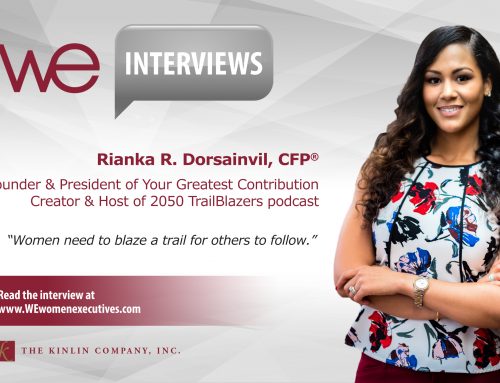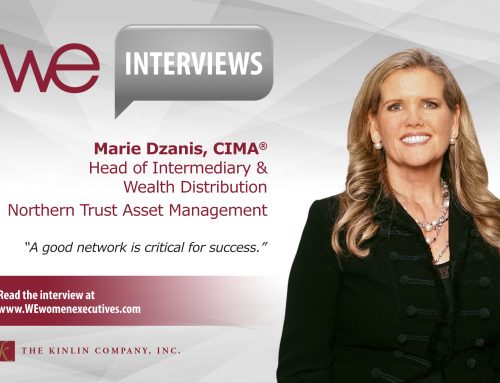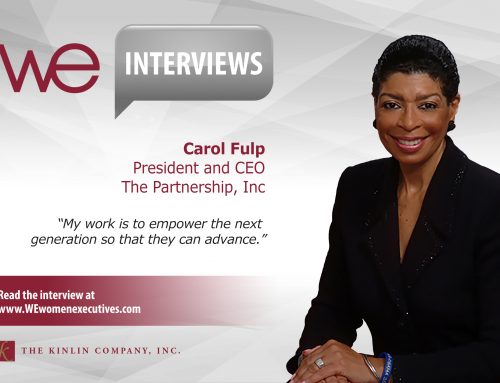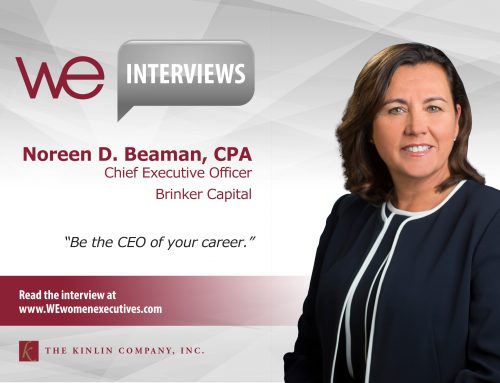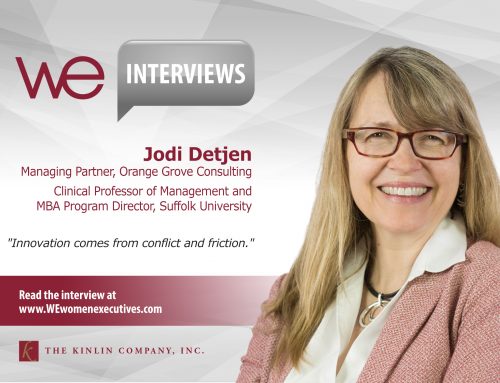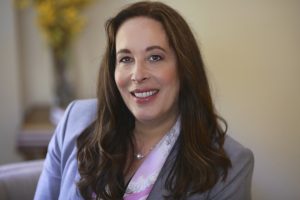 Rita Robbins
Rita Robbins
President & Founder
Affiliated Advisors
Rita Robbins is the President and Founder of Affiliated Advisors, a firm she founded in 1994. Robbins was one of the first, if not the first, woman to start a Super OSJ and she has realized great success. Today, the business has over 110 advisors and 18 branch offices with more than $2.5 billion of assets under management.
Affiliated Advisors caters to independent advisors or those seeking to go independent and provides an array of services, from compliance to marketing, wealth transfer, fixed insurance, and investment solutions coupled with individualized social media strategies and detailed business planning.
I recently sat down with Robbins to talk about the genesis of the firm and the lessons she’s learned over the course of her career.
Maintain involvement
I began the conversation with a simple question. What prompted you to launch the firm and what role do you now serve in running it?
“I had been working as a Regional Director for a large asset management firm for 10 years and I loved the job, but it involved a huge amount of traveling and after my daughter Alison was born, I no longer wanted to spend every day of every week of every month traveling. And although I had a very successful career, I wasn’t getting the kind of job opportunities and advancements that my male counterparts were. So, I almost fell into this business from a default mode, trying to stay in touch with all the advisors that I had met and worked with over the previous decade. It was an organic process that was an unexpected positive result of industry sexism, which was alive and well back in the ‘90s.
“These days, I look at my role as having three main functions. Firstly, I’m the pilot with the 35,000-foot view who looks out over the landscape and decides where we’re going and what we need to deliver to support our Advisors’ success and help them meet the challenges they face every day.
“Secondly, I’m a cheerleader. I need every member of my team to be enthusiastic about what we’re doing—they must understand our vision, our direction, and our service orientation. So, I rally them around and make sure we’re all on the same page. That role of cheerleader is important, because the team is important—no one ever achieves success alone.
“Lastly, I’m a janitor, because ultimately all the messes fall on my shoulders. I get involved in operational problems, compliance issues, and clearing firm mishaps. There are virtually no problems too small for me to help solve.”
Stay client-focused
Having established Robbins’ role in the firm, I was eager to tap into her depth of experience. Since launching the firm, you’ve obviously witnessed a good deal of change and weathered many economic storms. What trends are you watching most closely now, and why?
“There are several important and potentially huge trends staring us down. One is the fiduciary standard. My team and Royal Alliance have embraced this responsibility and it surprises me that some in the industry oppose it. I’ve never gone into a doctor’s office and wondered whether my interests came before the practice’s profits or those of the pharmaceutical company whose drugs the doctor prescribes. I think we need to have that same approach and standard of care in our industry. All the advisors I work with are investment advisors and work under an RIA. We have been early adopters of this model and as a result, it is a very significant part of our business.
“The second trend that I see is a combination of fee compression and the digital implications for our business. For instance, I have a 25-year-old daughter who creates digital media strategies for a well-regarded agency. She may be using an online robo-advisor to help her with her budget and basic asset allocation, but when her father and I pass away, she’s not going to dial an 800 number for support and guidance. I believe that there will always be a need for high-touch advisors who play a vital role in their client’s lives that goes far beyond allocating assets in their 401Ks. I think advisors can incorporate digital into their offerings, but I don’t think there’s ever going to be a time when most people are going to be comfortable or successful with a do-it-yourself model, which is really what robo/digital is all about. Advisors who do not involve themselves in all aspects of their clients’ financial lives or fail to communicate regularly and effectively will see their market share, referrals, growth and profitability suffer and decline.”
Believe in yourself
Continuing to mine the vein of Robbins’ experience, I decided to ask about her thwarted desire to be a stockbroker. You revealed in an Investment News interview that you wanted to be a stockbroker, but your firm had a rule that there could only be one female broker per branch. How did you navigate around that obstacle, and what lessons did you learn along the way?
“My first job on Wall Street was as a sales assistant to four brokers at EF Hutton and I loved it. I had to know about current events and I spoke with clients all day. I loved that interaction and the broad perspective that the job required. I was heartbroken when, a few years later, I was passed over to become a stockbroker at another firm where I was working. I’d already proven my worth as an employee for several years, but nevertheless instead of me, they hired a man who working in a hardware store – because he had a great golf handicap! That was considered an asset back then. I was crushed, and I still don’t play golf. The upside was the realization that I had to find a job where my efforts and results would determine my income as well as my future.
“I became a marketing director for one of the first independent broker dealers. The crushing blow of not being hired as a stockbroker turned into a fabulous opportunity to work with Jay Lewis, who developed the model for IBDs and became a great mentor to me. He said, ‘You should be in marketing and sales, not in operations,’ and he gave me a chance to help him build an independent broker dealer, which was a brand-new concept. Jay allowed me to move in the direction I wanted. He supported me and enabled me to spend time speaking with advisors about the concept of an IBD and introducing them to products that we believed would have a unique place in their solution set. I’m still fortunate enough to see him occasionally, and I can’t stress enough how important his belief in my abilities has been in my life as well as my career. He had much more confidence in me than I did!”
So, it was his mentoring that helped you to navigate your own career?
“Absolutely. As women, we tend to be really hard on ourselves, believing in unrealistic perfectionism, so having a very successful and creative mentor made me feel like I could do anything.”
Respect emotions
Having someone in your corner is clearly empowering, but at the end of the day, you must navigate challenges on your own. What’s one of the toughest challenges you’ve faced in your career, and how did you handle it?
“There are many. I have horror stories about the sexism I’ve encountered. We’re all going to have challenges and circumstances that will bring us to our knees—no one gets through life without enormous obstacles. A huge challenge, obviously, was the financial crisis, particularly because the broker dealer we were with was owned by AIG. So, the financial crisis really stands out for me. This was global and all-encompassing—like nothing we’d ever seen before. One night I actually thought to myself, ‘Should I just be stockpiling cash under our bed?’ What individual with my experience and knowledge would think that way? I realized that if I was reacting to the ongoing panic in that manner, others were, too. I felt it was up to me to set the “tone” for my advisors, to be their pilot as well as their cheerleader. I made a deal with them: you take care of your clients and I’m going to take care of us. I spent a huge amount of time putting together a ‘Plan B.’
“I also realized that my advisors needed more—they were suffering from compassion fatigue. So, we altered our course. I brought in a coach and we held webinars on breathing and relaxation techniques. We communicated with them very frequently. There were some advisors I made sure to check in with daily. Many advisors had enormous feelings of guilt and personal responsibility. When you watch portfolios decline by 30 or 40 percent, this is inevitable and yet in our business, we still fail to discuss the volatility of our own emotions openly.
“It was very difficult to be an advisor during the crisis—you were trying to reassure clients and at the same time questioning whether you had done the right thing. Everything we had learned seemed meaningless; for example, normal correlation between asset classes fell by the wayside! I dealt with advisors and the emotional impact of this global financial crisis differently than many firms, and what set me apart may have been the fact that as a woman, I was much more aware of the heavy emotional toll the experience took on advisors.”
I read somewhere that you believe women connect with clients in a different way than men. What do you mean by that?
“I’ve actually been spending a lot of time the last year talking to advisors about how they market themselves and their practices. I think we need to change what we say and how we say it. We need to market ourselves and our services differently. We should consider what we ultimately bring to people’s lives. I do think that women relate to clients more easily. I think it’s easier for them to speak with people and truly understand what they’re really saying. I think men rely too much on their credentials and jargon and perhaps don’t actually hear what clients are saying. What clients really care about are things like, ‘Am I going to be able to take care of my parents when they get old?’ ‘Will I be able to help put my children or grandchildren through college?’ ‘Am I going to run out of money when I retire?’ These are people’s real concerns. I think these are the emotional issues we should strive to understand and address.”
Create opportunities
Given Robbins’ clear belief that women advisors bring unique skills to the table, I was eager to get her take on their underrepresentation. Why are women so underrepresented in the sales force, particularly in the independent broker dealer channel?
“I can’t say that it’s just in the independent broker dealer channel; I think it’s industry wide. The statistics indicate that anywhere from 16 to 30 percent of financial advisors are women, but I think the actual number is closer to the low end. Part of the problem is that we’re not going where the young women are, and part of the problem is cultural. Women don’t want to work on Wall Street because the perception is that in the traditional firms, it’s still a big frat party, and that’s a real turnoff. I also think that the traditional pathways to becoming a financial advisor, for example training programs at the wire houses and insurance companies, have changed because the economics have changed. We need to change how we discuss the role of a financial advisor and emphasize the helping nature of our profession.”
Take risks
At this point in the interview, I decided to shift the focus away from Affiliated Advisors to talk about Robbins’ lavender farm. What was the inspiration behind that, I asked.
“I have a lot of advisors in the Midwest, and I have an office in Michigan as well as in New York City. Several of my advisors have homes in northern Michigan. People go to the northern part of the state, which is just stunningly beautiful, the way that people in New York City go to the Hamptons.
“One of my advisors, Bill Mansfield, has a home up north and has been visiting this lavender farm ever since his kids were very young. A few years ago, he was out to dinner up north and the restaurant owner told him that the lavender farm was for sale. His daughter, who was eight at the time, said, ‘Dad, let’s buy the farm.’ He laughed and said, ‘No way!’. But then he and his wife Erin thought about it and realized they did want to buy the farm. So, Bill called me and asked if I wanted to buy a lavender farm with them. I became their partners and purchased the farm without ever seeing it.
“It seemed like the most amazing thing to me that I could have a hand in growing lavender. The woman who owned the farm was a beekeeper and grew the lavender because it’s a superfood for bees. She wasn’t at all sure that she wanted to sell her beloved farm to a woman from New York City and a couple from Michigan, none of whom had ever farmed. But it just so happened that my husband had given me a lavender plant, which I had on the windowsill of my office in Manhattan, so I took a picture and sent it to her. I’m not saying that clinched the deal, but I think she thought, ‘Well, these are successful people and they really do like lavender,’ so she agreed to sell to us.
“We now have a staff of almost 30, 95 percent of whom are women. We’ve partnered up with a wide array of local businesses manufacturing everything from ice cream to maple syrup as well as chocolates, candles, cookies, sachets, lip balms and soap, and the farm has grown enormously. We grow 24 different varieties of lavender, and on a busy day we can have 500 visitors. We’ve turned a 98-year-old barn into an events space and we just took over a concert series from another farm, so we have live music, too! We also host weddings and special events. Lavender Hill Farm has become one of the top agri-tourism destinations in the area and has fostered both interest and economic development in Boyne City.”
Trust your instincts
We had reached the point in the interview where I asked my favorite closing question. What advice can you provide to women who might be stuck or struggling to get to that next role in their career?
- Don’t sell yourself short. You can do it! Focus your energy and time on pursuing what you want to do. Don’t think about the downside, because that is a useless waste.
- Give yourself a break. I spent a lot of time away from home when my children were growing up, and I’ve always had guilt and a nagging doubt as to whether that was the right choice. But now my son is 20 years old and my daughter is 25, and I’m amazed at how frequently they tell me that I was their role model and they’re proud of my achievements. Nobody expects perfection and the more we demand this of ourselves, the less joy we’re going to have in our lives.


